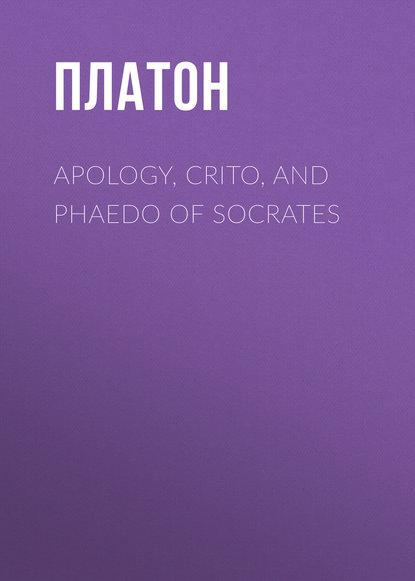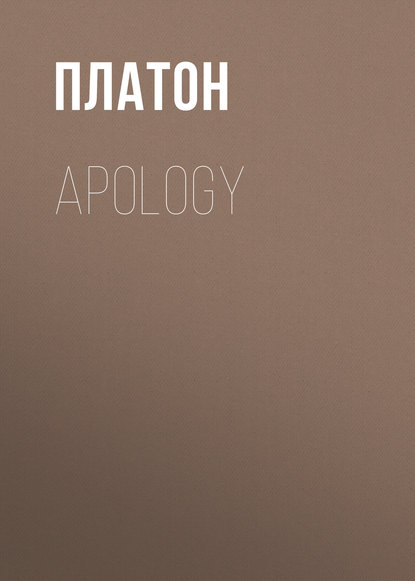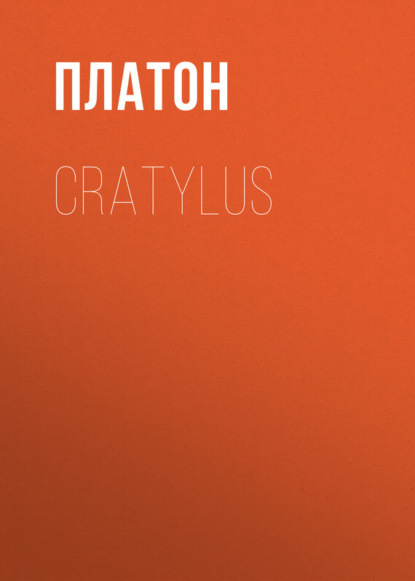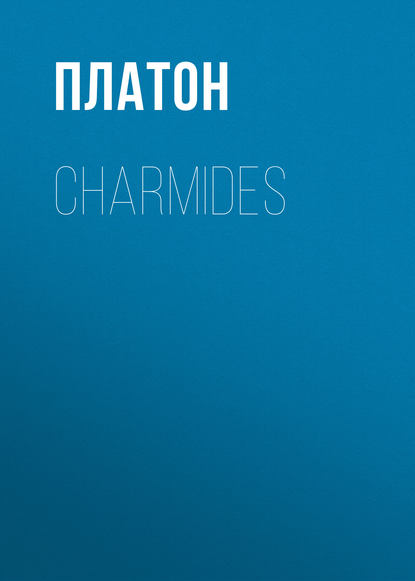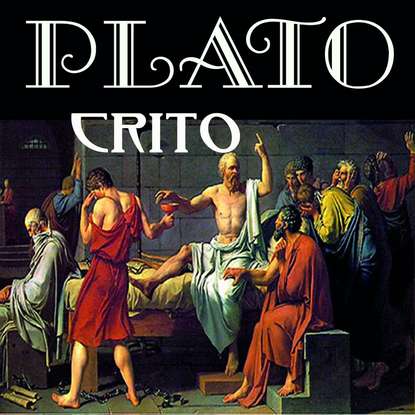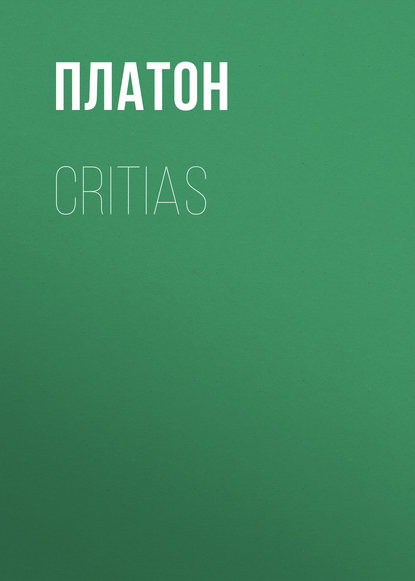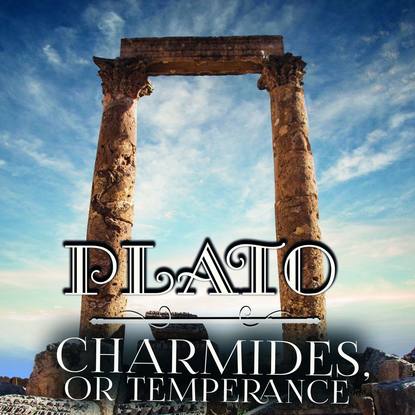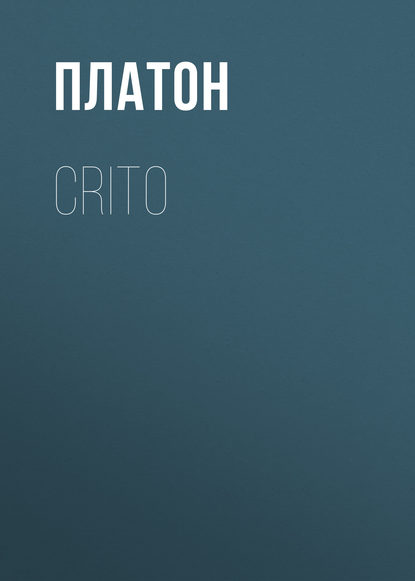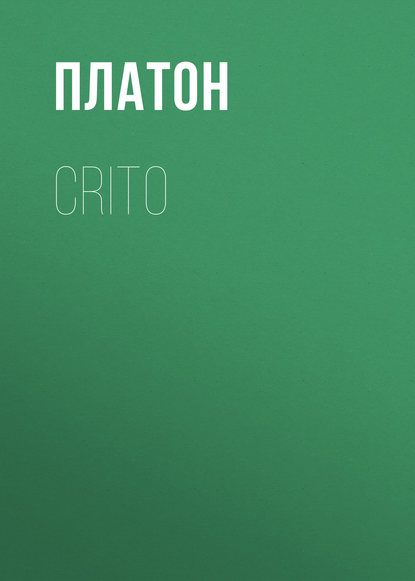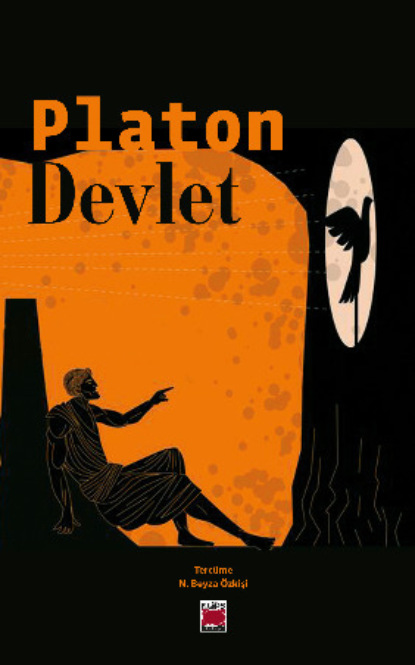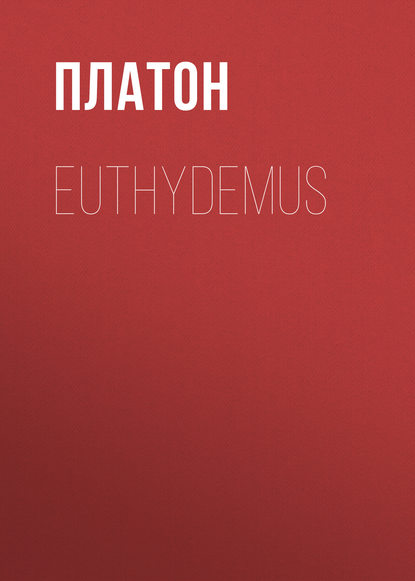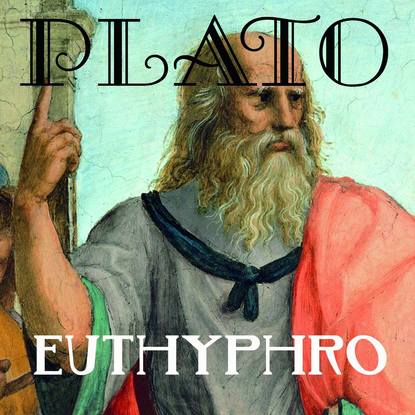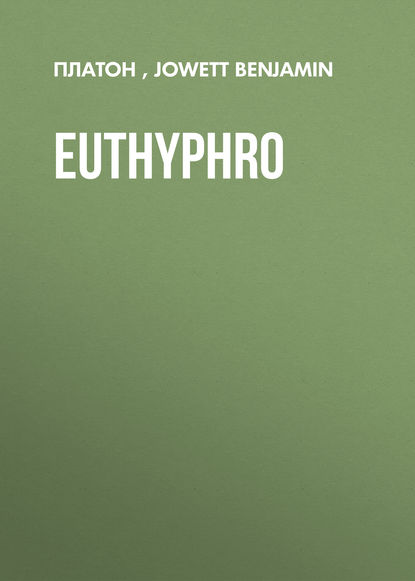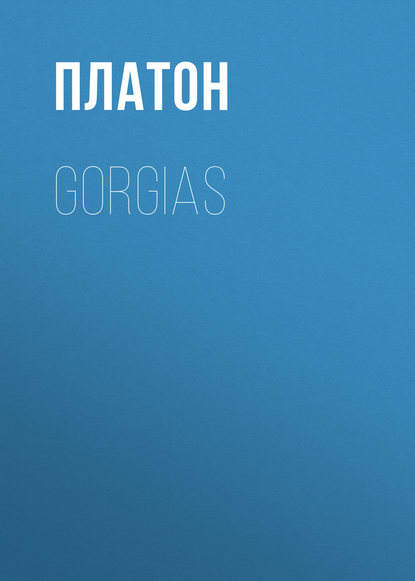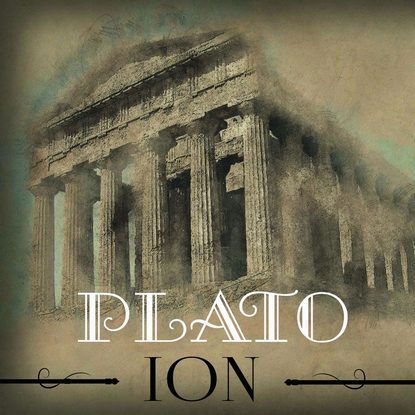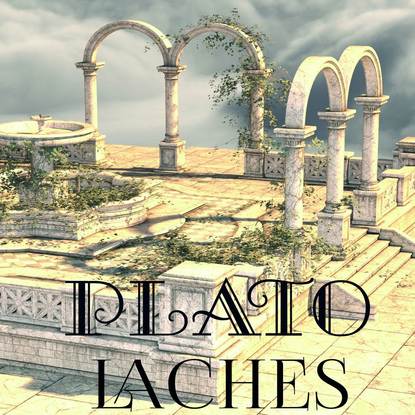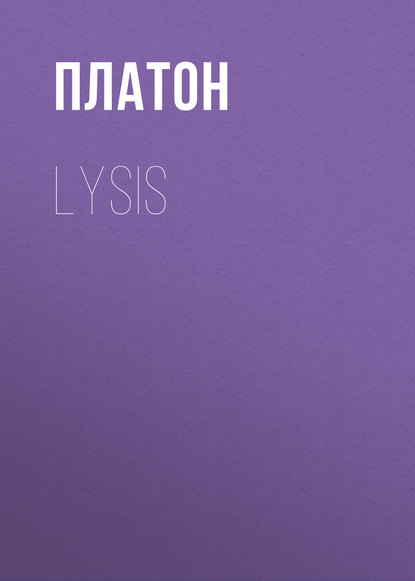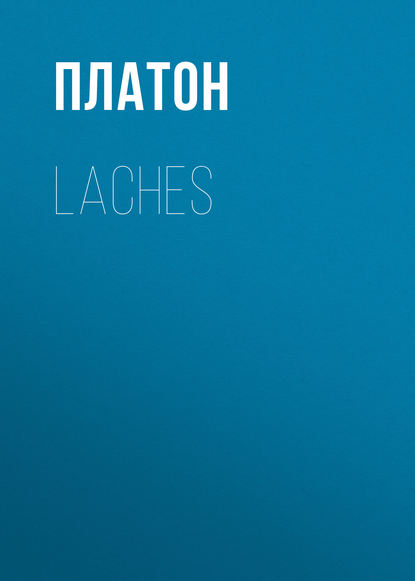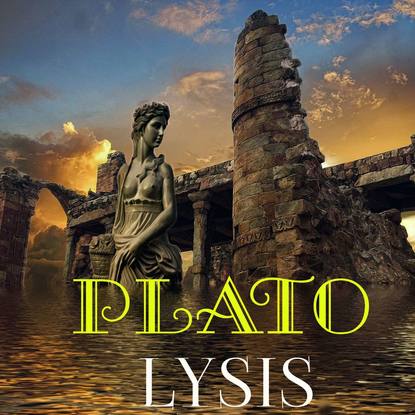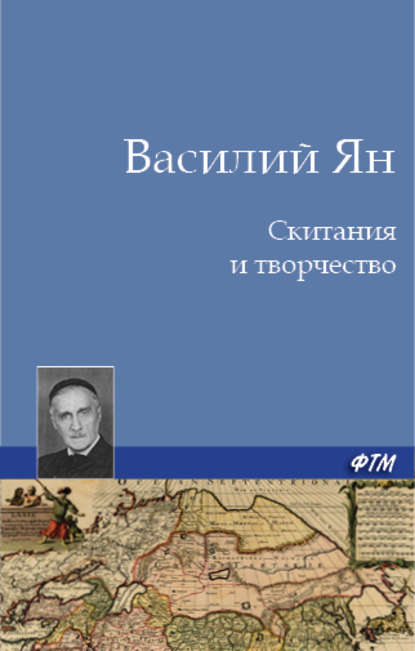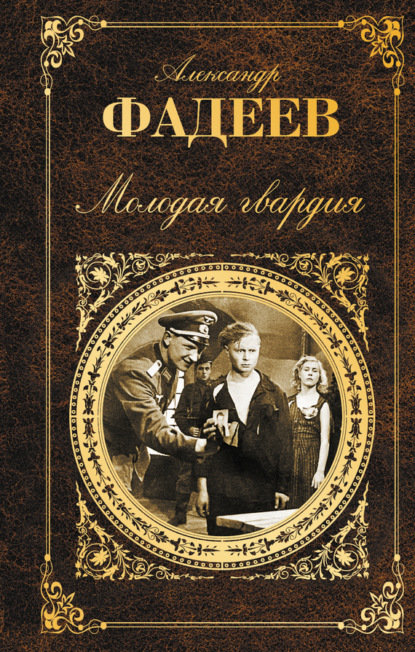Поиск:
Войти
Книги автора: Платон
Сортировка
Crito (Ancient Greek: Κρίτων [krítɔːn]) is a dialogue by the ancient Greek philosopher Plato. It dep…
Crito (Ancient Greek: Κρίτων [krítɔːn]) is a dialogue by the ancient Greek philosopher Plato. It depicts a conversation between Socrates and his wealthy friend Crito regarding justice (δικαιοσύνη), injustice (ἀδικία), and the appropriate response to injustice. Socrates thinks that injustice may not be answered with injustice, and refuses Crito's offer to finance his escape from prison. The dialogue contains an ancient statement of the social contract theory of government.
In contemporary discussions, debate over the meaning of Crito attempt to determine whether it is a plea for unconditional obedience to the laws of a society.
The conversation, which may be based on a true historical event, was published in 399 BC. Since his trial in Apology, Socrates has been imprisoned for four weeks, with his execution coming in a matter of days. Historians are not aware of the exact location of Socrates' cell, but according to excavations, it is about 100 meters southwest of the Heliaia court, just outside the site of the agora.
Other than Socrates, Crito is the only other character in the story. Crito himself is a rich Athenian, who like Socrates is from Demos Alopeke. Once charged with corrupting the youth and atheism, Crito unsuccessfully vouched to pay Socrates' bail. Additionally, after Socrates was sentenced to death, Crito was ready to pledge to the court that Socrates would not flee in order to spare him the prison sentence. This plea was ultimately rejected. Through both the trial and the execution, Crito was present.
In other dialogues, Crito is a conventional Athenian, who cannot understand Socrates' philosophy, despite his attempts to do so.
The dialogues of Plato – Early, Transitional and middle, Later middle, Phaedo, Later middle, Late, Of doubtful authenticity.
Скачать бесплатно в формате mp3!
The Charmides (Greek: Χαρμίδης) is a dialogue of Plato, in which Socrates engages a handsome and pop…
The Charmides (Greek: Χαρμίδης) is a dialogue of Plato, in which Socrates engages a handsome and popular boy in a conversation about the meaning of sophrosyne, a Greek word usually translated into English as «temperance», «self-control», or «restraint». As is typical with Platonic early dialogues, the two never arrive at a completely satisfactory definition, but the discussion nevertheless raises many important points.
Famous dialogues of Plato – Early: Apology, Charmides, Crito, Euthyphro, Hippias MinorIon, Laches, Lysis; Transitional and middle: Cratylus, Euthydemus, Gorgias, Menexenus, Meno, Phaedo, Protagoras, Symposium; Later middle: Parmenides, Phaedrus, Republic, Theaetetus; Late: Critias, Laws, Philebus, Sophist, Statesman, Timaeus.
Скачать бесплатно в формате mp3!
Adil insan kimdir? Adil yönetici nasıl olmalı, nasıl yetiştirilmelidir? Dünyadaki en adil ve mutlulu…
Adil insan kimdir? Adil yönetici nasıl olmalı, nasıl yetiştirilmelidir? Dünyadaki en adil ve mutluluk veren yönetim şekli hangisidir? MÖ 340'larda yazılan bu eserin temel soruları bunlardır. Atina'da daha önce görülen hükûmetlerle ve mevcut hükûmet biçimlerini karşılaştırır Platon. İdeal kentin, devletin ve birçok toplumsal birimin yönetimine dair potansiyel biçimleri göz önünde bulundurarak teorilerini hem bireye hem de ideal şehir devletine uygular. Devlet, şüphesiz ki Platon'un asırlar boyunca kılavuz olan, en iyi bilinen eseridir. Demokrasi ile tiranlık arasındaki ince çizgiyi, mağara alegorisini, ruhun ölümsüzlüğünü, şiirin yapısı ve toplum için değeri hakkındaki fikirlerini Sokrates ve arkadaşları arasındaki diyaloglar ile aktarıyor. Balliol Koleji Başkanı Benjamin Jowett'in analizlerinin de yer aldığı bu eserde, tartışılan konuların pek çoğu hâlen güncelliğini koruyor. Belki de görüşlerin asırlar öncesinden şimdiye taşınmasının bir sebebi de bu… «…Bir devlet, anladığıma göre insanların ihtiyaçlarından doğar. Hiç kimse kendi kendine yeterli değildir ve hepimizin ihtiyaçları vardır. Devlet için başka bir çıkış noktası düşünülebilir mi? Öyleyse pek çok ihtiyacımız olduğu için, bir kişi bir amaç için birini, başka amaç için başka birini tutar. Ve bu yardımcılar bir araya getirilip bir yapı oluşturulduğunda buna devlet denir.»
Euthyphro (Ancient Greek: Εὐθύφρων, romanized: Euthyphrōn; c. 399–395 BC), by Plato, is a Socratic d…
Euthyphro (Ancient Greek: Εὐθύφρων, romanized: Euthyphrōn; c. 399–395 BC), by Plato, is a Socratic dialogue whose events occur in the weeks before the trial of Socrates (399 BC), between Socrates and Euthyphro. The dialogue covers subjects such as the meaning of piety and justice.
The Euthyphro dialogue occurs near the court of the archon basileus (king magistrate), where Socrates and Euthyphro encounter each other; each man is present at the court for the preliminary hearings to possible trials.
Euthyphro has come to present charges of murder against his own father who, after arresting one of his workers for killing a slave from the family estate on Naxos Island, tied him and threw him in a ditch where he died of exposure to the elements without proper care and attention while Euthyphro's father awaited to hear from the exegetes about how to proceed. Socrates is astonished by Euthyphro's confidence in being able to prosecute his own father for the serious charge of manslaughter, despite the fact that Athenian Law allows only relatives of the dead man to file suit for murder. Euthyphro dismisses the astonishment of Socrates, which confirms his overconfidence in his own critical judgment of matters religious and ethical.
The dialogues of Plato – Early, Transitional and middle, Later middle, Phaedo, Later middle, Late, Of doubtful authenticity.
Скачать бесплатно в формате mp3!
In Plato's Ion (Greek: Ἴων) Socrates discusses with the titular character, a professional rhapsode w…
In Plato's Ion (Greek: Ἴων) Socrates discusses with the titular character, a professional rhapsode who also lectures on Homer, the question of whether the rhapsode, a performer of poetry, gives his performance on account of his skill and knowledge or by virtue of divine possession. It is one of the shortest of Plato's dialogues.
Famous dialogues of Plato – Early: Apology, Charmides, Crito, Ion, Euthyphro, Hippias MinorIon, Laches, Lysis; Transitional and middle: Cratylus, Euthydemus, Gorgias, Menexenus, Meno, Phaedo, Protagoras, Symposium; Later middle: Parmenides, Phaedrus, Republic, Theaetetus; Late: Critias, Laws, Philebus, Sophist, Statesman, Timaeus.
Скачать бесплатно в формате mp3!
The Laches (Greek: Λάχης) is a Socratic dialogue written by Plato. Participants in the discourse pre…
The Laches (Greek: Λάχης) is a Socratic dialogue written by Plato. Participants in the discourse present competing definitions of the concept of courage.
Laches – Athenian general and statesman, son of Melanopus.
Famous dialogues of Plato – Early: Apology, Charmides, Crito, Ion, Euthyphro, Hippias MinorIon, Laches, Lysis; Transitional and middle: Cratylus, Euthydemus, Gorgias, Menexenus, Meno, Phaedo, Protagoras, Symposium; Later middle: Parmenides, Phaedrus, Republic, Theaetetus; Late: Critias, Laws, Philebus, Sophist, Statesman, Timaeus.
Скачать бесплатно в формате mp3!
Lysis (Greek: Λύσις), is a dialogue of Plato which discusses the nature of philia (φιλία), often tra…
Lysis (Greek: Λύσις), is a dialogue of Plato which discusses the nature of philia (φιλία), often translated as friendship, while the word's original content was of a much larger and more intimate bond. It is generally classified as an early dialogue.
The main characters are Socrates, the boys Lysis and Menexenus who are friends, as well as Hippothales, who is in unrequited love with Lysis and therefore, after the initial conversation, hides himself behind the surrounding listeners. Socrates proposes four possible notions regarding the true nature of loving friendship as:
Friendship between people who are similar, interpreted by Socrates as friendship between good men.
Friendship between men who are dissimilar.
Friendship between men who are neither good nor bad and good men.
Gradually emerging: friendship between those who are relatives (οἰκεῖοι «not kindred») by the nature of their souls.
Of all those options, Socrates thinks that the only logical possibility is the friendship between men who are good and men who are neither good nor bad.
In the end, Socrates seems to discard all these ideas as wrong, although his para-logical refutations have strong hints of irony about them.
Famous dialogues of Plato – Early: Apology, Charmides, Crito, Ion, Euthyphro, Hippias MinorIon, Laches, Lysis; Transitional and middle: Cratylus, Euthydemus, Gorgias, Menexenus, Meno, Phaedo, Protagoras, Symposium; Later middle: Parmenides, Phaedrus, Republic, Theaetetus; Late: Critias, Laws, Philebus, Sophist, Statesman, Timaeus.
Скачать бесплатно в формате mp3!
Популярные книги




